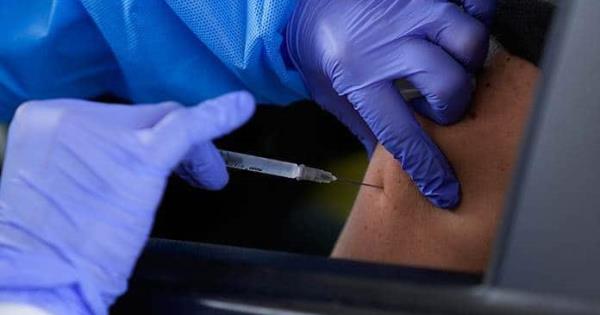Messenger DNA vaccines are safe for pregnant women, according to a study London, Aug 11 (EFE).- Messenger DNA vaccines against covid-19, such as those from Pfizer or Moderna, are safe for pregnant women, according to a study published this Thursday in “The Lancet”.
This research, carried out by the Canadian Vaccine Safety Network (CANVAS), is one of the first to examine side effects in vaccinated pregnant women and compare them with those of unvaccinated pregnant women and non-pregnant women also immunized.
The experts analyzed responses to questionnaires distributed to participants from seven Canadian provinces and territories between December 2020 and November 2021.
All vaccinated subjects detailed in their answers, if applicable, the presence of any health problem during the seven days after the administration of each dose of the covid vaccine.
The control group of unvaccinated pregnant women was also asked to report any health problems detected during the seven days prior to receiving the questionnaire.
In total, 191,360 pregnant women between the ages of 15 and 49 completed the health status study after the first dose, while 94,937 completed the second dose.
With these data, the experts found that, seven days after the second dose, 7.3% of pregnant women suffered from health problems that forced them to miss work or school, and required medical attention for headaches, fatigue and malaise overall, compared to 11.3% of vaccinated non-pregnant women.
They also found that 3.2% of unvaccinated pregnant women reported health problems similar to those cited in a given week, suggesting that some of the effects seen in vaccinated pregnant women may not be related to messenger DNA preparations.
They also found that there are no significant differences in the rates of more serious health problems in any of the groups analyzed.
“At the start of the COVID-19 vaccination campaigns, uptake was low among pregnant women due to concerns about data availability and vaccine safety. There is still lower than average uptake among non-pregnant women in reproductive age,” Manish Sadarangani, lead author of the study, explains in a statement.
The expert, from the Children’s Hospital of British Columbia, highlights that works like this are “key” to understanding what “rates of adverse effects” affect pregnant women after the different vaccination guidelines.
“This information should be used to explain to pregnant women about the side effects they may experience in the seven days after vaccination,” Sadarangani stresses.
–


